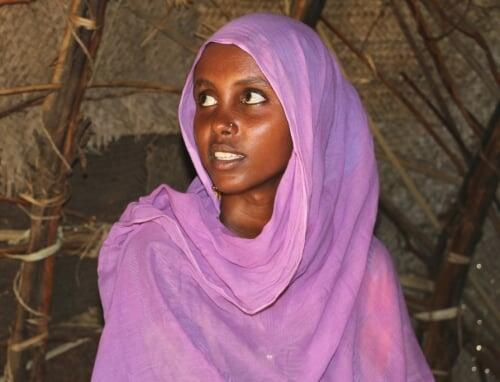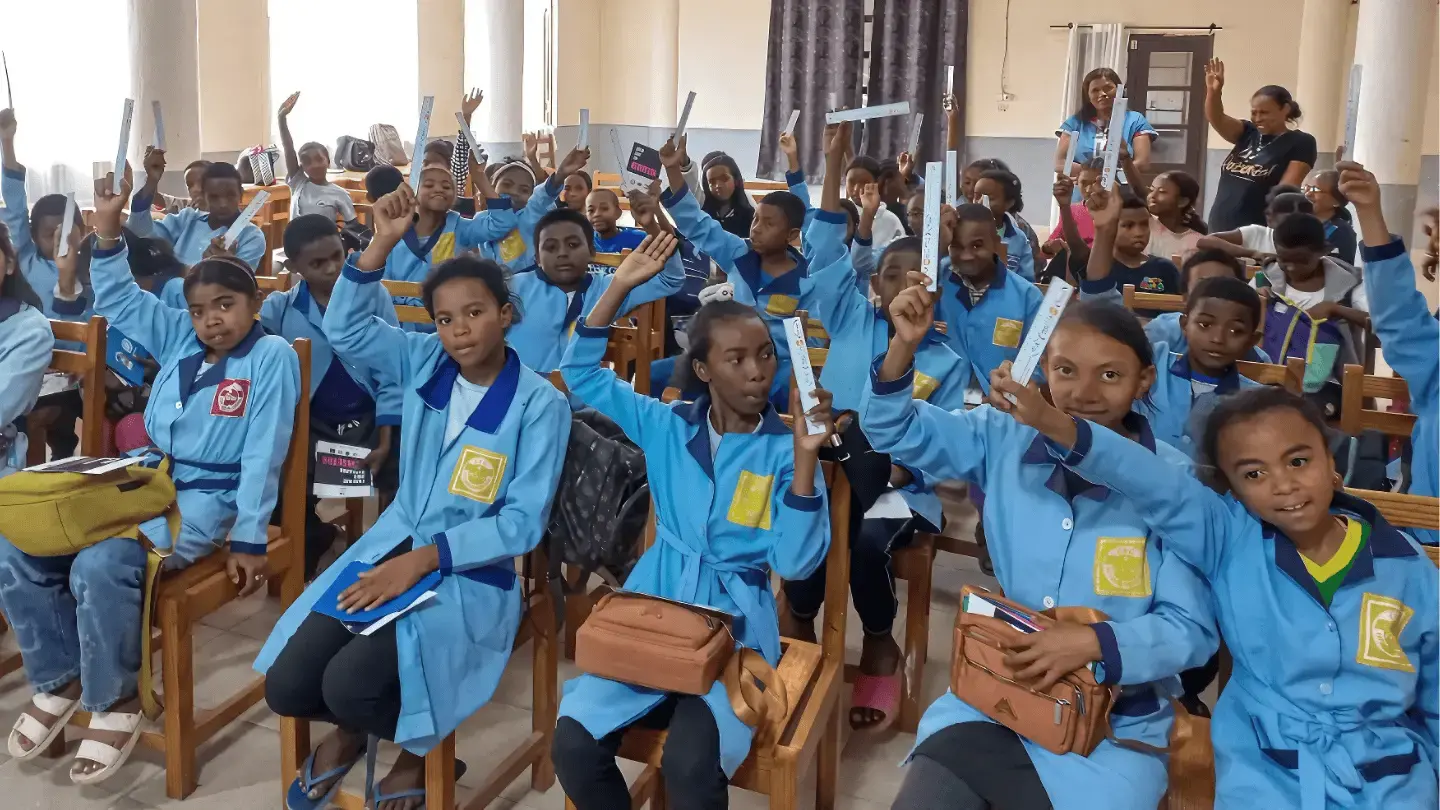AFAMBO, Ethiopia — This is a story of tremendous courage shown by a teenager in Ethiopia, a girl who has become a source of inspiration in her region and is leading the way for others to buck harmful traditions. Kadiga Mohammed was promised in marriage to her first and eldest cousin, an age-old practice for Afar girls known as the Absuma tradition. But she was in love with someone else.
Kadiga attends the local elementary school where she is in Grade 7. As she continued with her lessons she watched her parents making the final preparations for her wedding to an older cousin, until she could no longer remain quiet. Mustering the strength she needed to defy a long-standing tradition in her community, she approached her parents and told them something they had hoped never to hear. She was in love, and it wasn’t the man they were expecting her to marry.
For her parents, Kadiga’s defiance of them was an intolerable insult. They refused to listen to her pleas and so in desperation, she turned to her local District Council and later, the District Women’s Affairs Office, to report her case.
Kadiga was fortunate. After discussions with the authorities, her parents relented and agreed that she could choose her life partner. She is now married to the person she loves and importantly, has continued going to school.
Changes due to UNFPA-supported programme
It is thanks to the Programme on the Prevention of Child Marriage and Female Genital Mutilation/Cutting (FGM/C) that changes are happening in her region, she says. Like other schools, hers has established a girls’ club to discuss issues such as FGM/C, child marriage, and HIV & AIDS. And this learning is extending into the girls' communities.
The community that this courageous teenager resides in is one of seven where the programme, which UNFPA supports through funding from the UN Association in Sweden, is being implemented in collaboration with the Afambo District Women, Children and Youth Affairs Office.
'I am being ridiculed'
But things haven’t been easy for Kadiga. “I am being ridiculed by the community for resisting my parents’ arrangement and getting married to the person of my own choice,” she says. In part this is because people in her community are worried that other girls may follow suit. She reports that some parents are considering pulling their daughters out of her school and sending them elsewhere, to reduce the impact on their girls. “All this is nothing to me; I will keep very strong and go on,” she says confidently.
However arduous her journey might have been, it is the courageous stance of girls like Kadiga that makes an important inroad into the deep-rooted culture of child marriage in the Afar Region. The Ethiopian Demographic and Health Survey of 2011 places the Afar Region second in terms of the prevalence of child marriage in the country. What the campaign against child marriage has to consider is parents’ concerns that if their girls do not marry early, they may engage in pre-marital sex risking teenage pregnancy and thereby, bring disgrace to their families, communities and clans. They are also worried that their girls will not obey them.
In each intervention area of the Programme on the Prevention of Child Marriage and FGM/C, the Afambo District Women, Children and Youth Affair’s Office works with a committee composed of representatives from the district administration, law enforcement bodies, religious and clan leaders, school administration and parent-teacher associations. This collaboration includes other influential players at the community level, such as traditional birth attendants, former circumcisers, and Health Extension Workers (community health workers).
To date, training has been provided to all those involved at each level on the harmful effects of child marriage and FGM/C, and the course of action to be followed in the fight against these practices. After a consultative discussion, the representatives agreed to work together to help end these two practices.
Sparing girls from marriage until age 18
Every two weeks a community conversation is held in the programme intervention areas with the respective communities. The discussion centres on convincing the communities to allow their girls to continue with school and to be spared from marriage until they are at least 18 years old. When it comes to female genital mutilation/cutting, religious leaders explain that this is a condemned practice that is not condoned either by the Holy Koran or by the Hadith. They challenge those religious leaders who teach otherwise and even bring them to justice.
Those involved in the drive against child marriage agree that it is an area where they stand to encounter serious challenges – even more so than FGM/C. In the Afar tradition, a girl is considered ready for marriage upon starting menstruation. Since the effort is being undertaken in an integrated manner, there is a strong hope that attitudes – and practices – will change as a result. However, the intervention would be strengthened if, in addition to the commendable involvement of law enforcement bodies, the Afar Region adopted a Family Law, taking into account the specific conditions of the region. This would provide a legal framework for the fight against child marriage.
“In my culture, when a girl gets married she drops out of school and stays at home to take care of household chores,” Kadiga says. Luckily for her, her husband is a teacher and as he is supportive of her education, she has remained in school.
'My infibulation scars worry me'
One issue continues to cause her concern, though. She feels that the scars left by the infibulation she underwent as a child may be problematic when she attempts to have a baby. Because of this, she plans to deliver at a health institution, in the hands of a skilled birth attendant. And on a personal level, she will take a stand against FGM/C. “I will never subject my child to FGM/C if she happens to be a girl and I will teach her the consequences of the practice early on,” Kadiga says. She says that she is seeing an increasing tendency in her community to condone Sunna, which is the cutting of the tip of the clitoris only. Because she disagrees with the practice, she speaks out against it. FGM/C is wrong and should be abandoned in its entirety, she teaches.
In Kadiga’s community, her actions are having a ripple effect. Girls envy her bravery and tell her that she is their role model. While the Programme on the Prevention of Child Marriage and FGM/C is helping to educate people against and eradicate these harmful practices, it is the courage of girls like Kadiga that empower others to take a stand and in so doing, change their future and ultimately, enable their communities to prosper.




